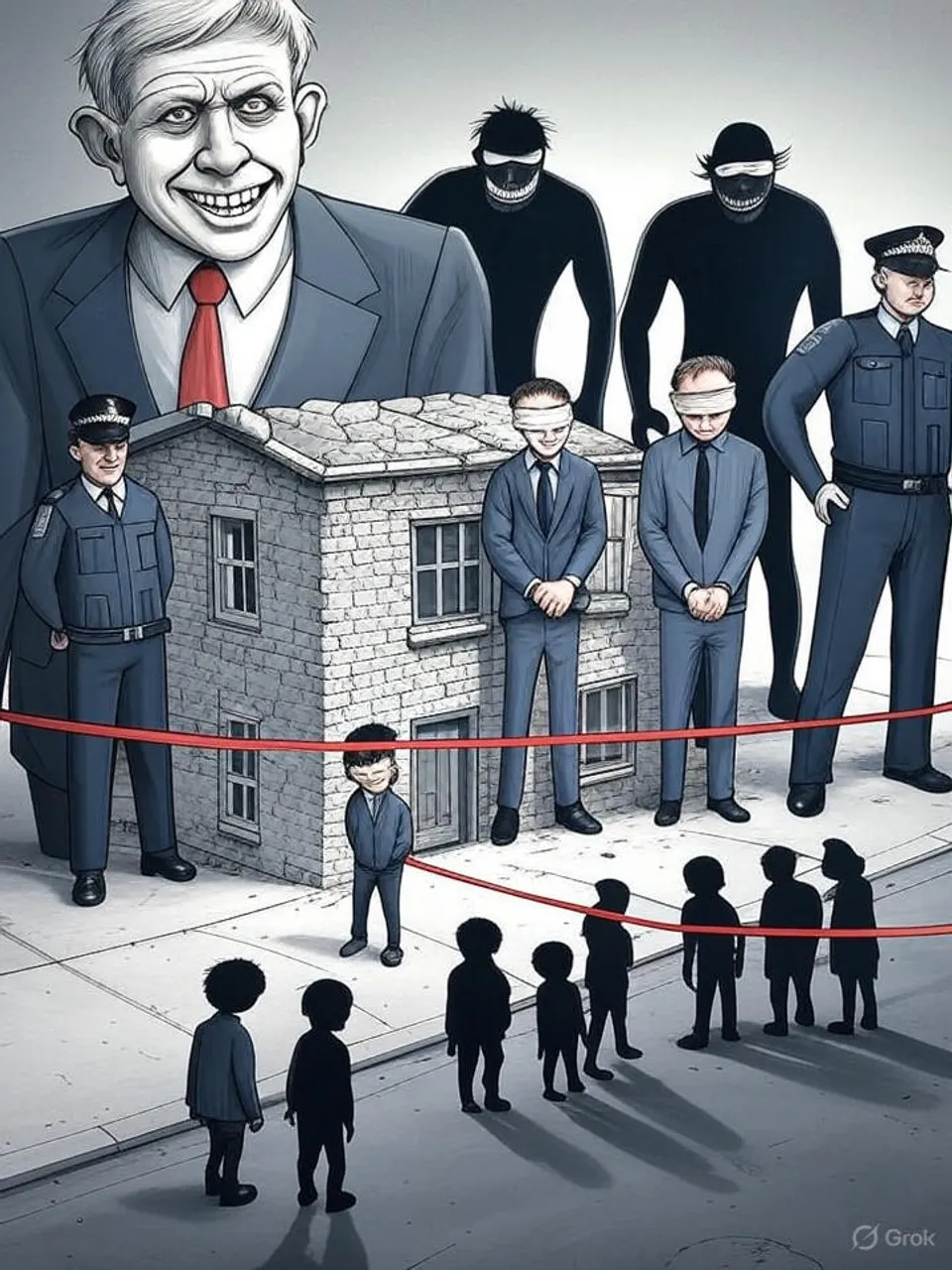Rochdale's Shadow Persists

Seventeen years from crime to courtroom in child exploitation case
New charges in Rochdale highlight enduring failures in child protection, with 17-year delays exposing systemic breakdowns in policing and justice that span governments and erode trust.
Rochdale’s Shadow Persists
Three men face charges for child sexual offences committed between 2008 and 2009. Greater Manchester Police announced the indictments on 30 October 2025, with court appearances scheduled for March 2026. This timeline spans 17 years from the alleged crimes to initial hearings.
The charges involve rape and sexual assault against one victim, a girl aged 13 to 15 at the time. Naveed Anwar, 41, and Mohammed Abdul-Sami, 44, each face two counts of rape. Dilwar Ali, 45, faces three counts including assault by penetration.
All three suspects reside in Rochdale. Police bailed them pending trial. The investigation stems from Greater Manchester Police’s specialist Child Sexual Exploitation Major Investigation Team.
Rochdale gained notoriety in 2012 for widespread child grooming gangs. A 2012 report by Professor Alexis Jay detailed how authorities ignored abuse of at least 47 girls from 2003 to 2009. Victims suffered repeated rapes, trafficking, and violence, yet police and social services dismissed complaints as lifestyle choices.
That scandal exposed institutional paralysis. Greater Manchester Police classified many cases as non-crimes due to fears of racial tensions. The Crown Prosecution Service declined prosecutions, citing insufficient evidence or unreliable witnesses.
National inquiries followed. The 2020 Home Office report on grooming gangs identified similar failures across 18 police forces, including Rochdale. It noted overrepresentation of British-Pakistani men in convictions, but stressed systemic underreporting and victim-blaming as core problems.
These new charges align with the 2008-2009 period covered in the Jay report. They suggest unresolved cases from the same era now surface through specialist teams formed post-scandal. Yet the 17-year delay underscores persistent bottlenecks in the justice system.
Britain’s courts face chronic backlogs. The Ministry of Justice reported 67,000 outstanding cases in magistrates’ courts as of September 2025. Crown Court delays average 40 weeks from charge to hearing, exacerbated by post-pandemic staffing shortages and underfunding.
This affects sexual offence cases acutely. A 2023 Victim Support study found rape trials take 759 days on average from reporting to verdict. Victims endure prolonged trauma, with many withdrawing complaints due to exhaustion.
In Rochdale, local safeguarding remains fragile. A 2024 Ofsted inspection rated Rochdale Borough Council’s children’s services as inadequate, citing poor multi-agency coordination. Frontline workers report resource constraints that hinder proactive interventions.
The pattern extends nationally. The Independent Inquiry into Child Sexual Abuse, concluding in 2022, examined 15 institutions and found consistent failures in listening to children. It recommended mandatory reporting laws, yet Parliament has not enacted them by 2025.
Grooming cases recur despite reforms. West Yorkshire Police charged nine men in 2024 for offences dating to 2002. Operation Stovewood in Rotherham, another hotspot, has identified over 1,100 potential victims since 2014, with trials projected to continue until 2027.
These delays erode public trust. A 2025 Ipsos poll shows only 42% of Britons believe police effectively tackle child exploitation, down from 58% in 2015. Victims’ families express frustration at bail conditions allowing suspects to remain in communities.
Accountability gaps persist across administrations. Labour councils in Rochdale during the 2000s, followed by Conservative-led national governments, oversaw the initial failures. Post-2012 inquiries led to resignations, like that of GMP’s chief constable in 2015, but systemic changes lag.
No party has reversed the underinvestment. Police funding per officer fell 19% in real terms from 2010 to 2020, per the National Audit Office. Specialist teams, while valuable, operate amid broader cuts that prioritize volume crime over complex investigations.
This case reveals deeper institutional pathology. Power structures protect inertia over victims. Ordinary citizens, especially in deprived areas like Rochdale, bear the cost through fractured communities and diminished safety.
The UK’s decline manifests in these unhealed wounds. Child protection, once a societal cornerstone, now crumbles under delayed justice and repeated oversights. Britain documents its own failures, but action remains deferred.
Commentary based on Three men charged with child sexual offences in Rochdale at Sky News.